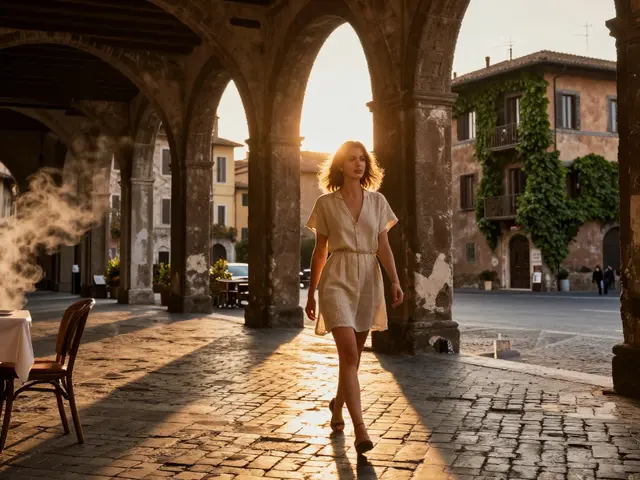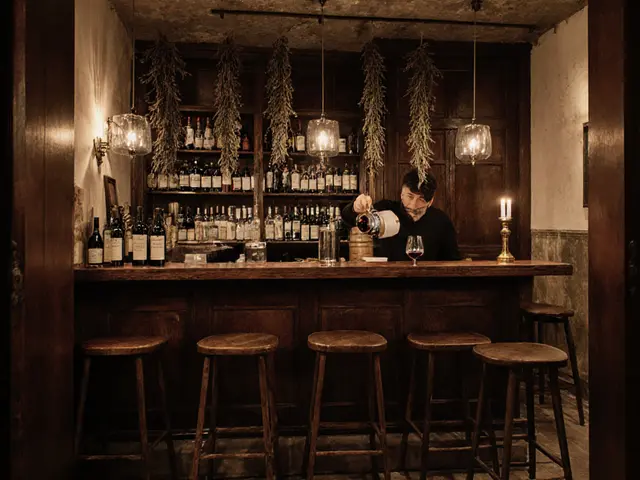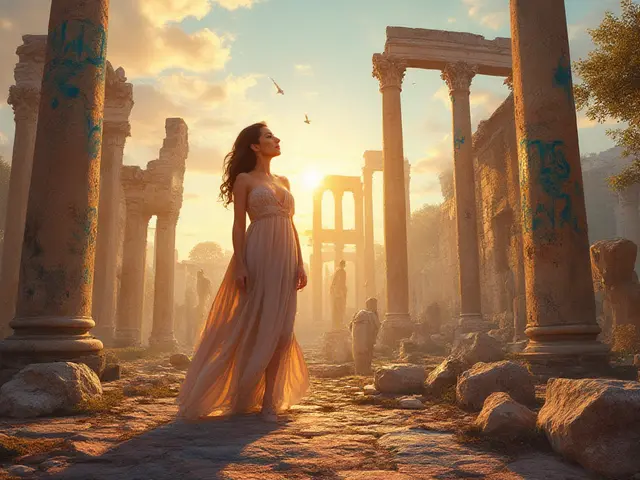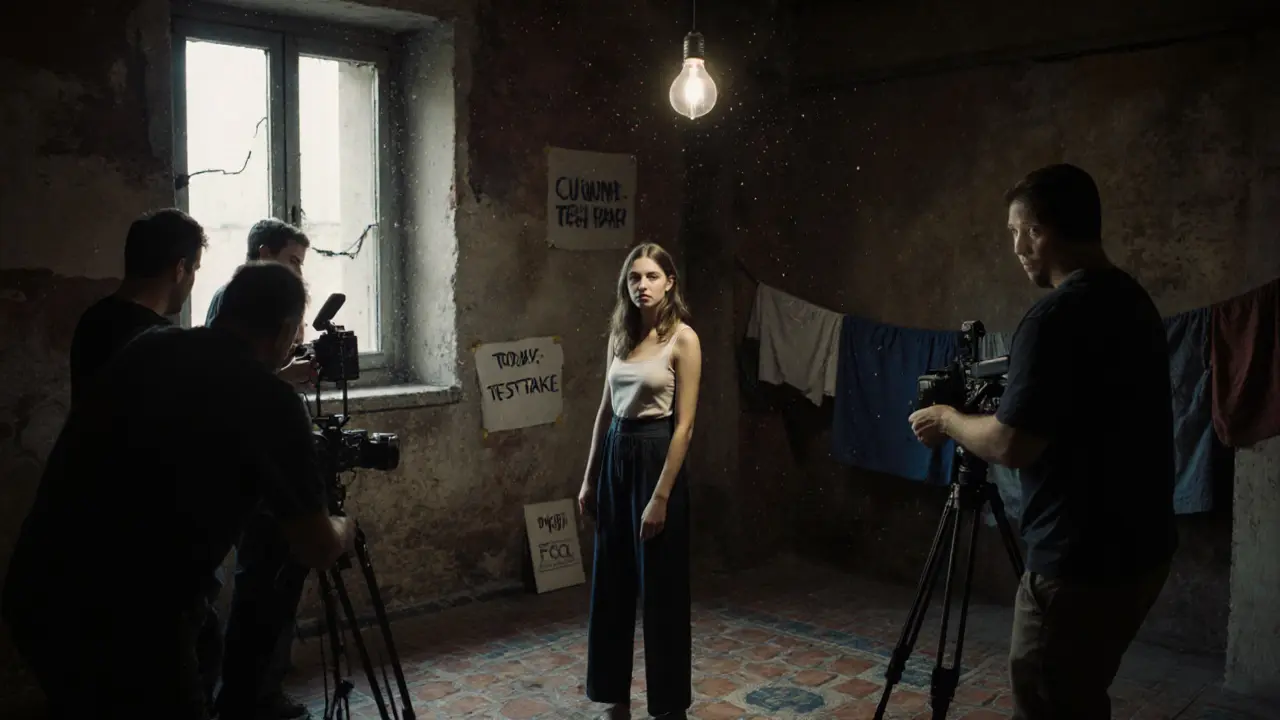
Valentina Nappi didn’t become one of Italy’s most recognizable adult performers by accident. Her rise wasn’t built on viral clips or tabloid headlines-it was forged in the back alleys of Trastevere, the quiet studios near EUR, and the late-night conversations in Roman cafés where ambition meets reality. She didn’t move to Rome to become a star. She moved there because it was the only place that made sense.
Where It All Began: Rome’s Hidden Corners
Valentina was born in 1989 in a small town outside Naples, but by her early twenties, she was living in a one-bedroom apartment near Piazza Vittorio in Rome. She worked odd jobs-bartending, modeling for local photographers, translating for tourists. Nothing stuck. She wasn’t looking for fame. She was looking for control. In 2010, a friend introduced her to a small indie production house that filmed short scenes in converted lofts near the Tiber. They paid in cash. No contracts. No agents. Just a camera, a light, and a director who asked, "Do you want to do this for real?"
She said yes.
Her first scene was shot in a studio with no name, tucked behind a hardware store in the San Giovanni district. The crew was three people. The budget? Less than €500. She didn’t know how to pose. She didn’t know how to read a script. But she knew how to be honest. That rawness showed up on film. The director kept the take. It went viral on Italian forums before anyone even knew her name.
The Shift: From Underground to Industry
By 2012, Valentina was working regularly-not because she was chasing trends, but because she refused to play by the old rules. While other performers accepted scripted scenarios and rigid schedules, she insisted on creative input. She wrote her own storylines. She chose her co-stars. She negotiated pay upfront. She didn’t sign anything without reading it twice. That made her dangerous in an industry that thrived on silence.
She turned down offers from major studios in Los Angeles. She turned down offers from German producers who wanted her to change her name and speak in English. She stayed in Rome. Why? Because the city gave her anonymity when she needed it and visibility when she chose it. She could walk into a trattoria in Monti and be left alone. She could walk into a film festival in Venice and be recognized as an artist.
Her work began to shift. Scenes became more intimate, less performative. She collaborated with filmmakers who saw her as a subject, not a commodity. One project, "La Casa di Valentina," filmed entirely in her own apartment in Testaccio, became a cult hit in European arthouse circles. Critics called it "a quiet rebellion." She called it Tuesday.
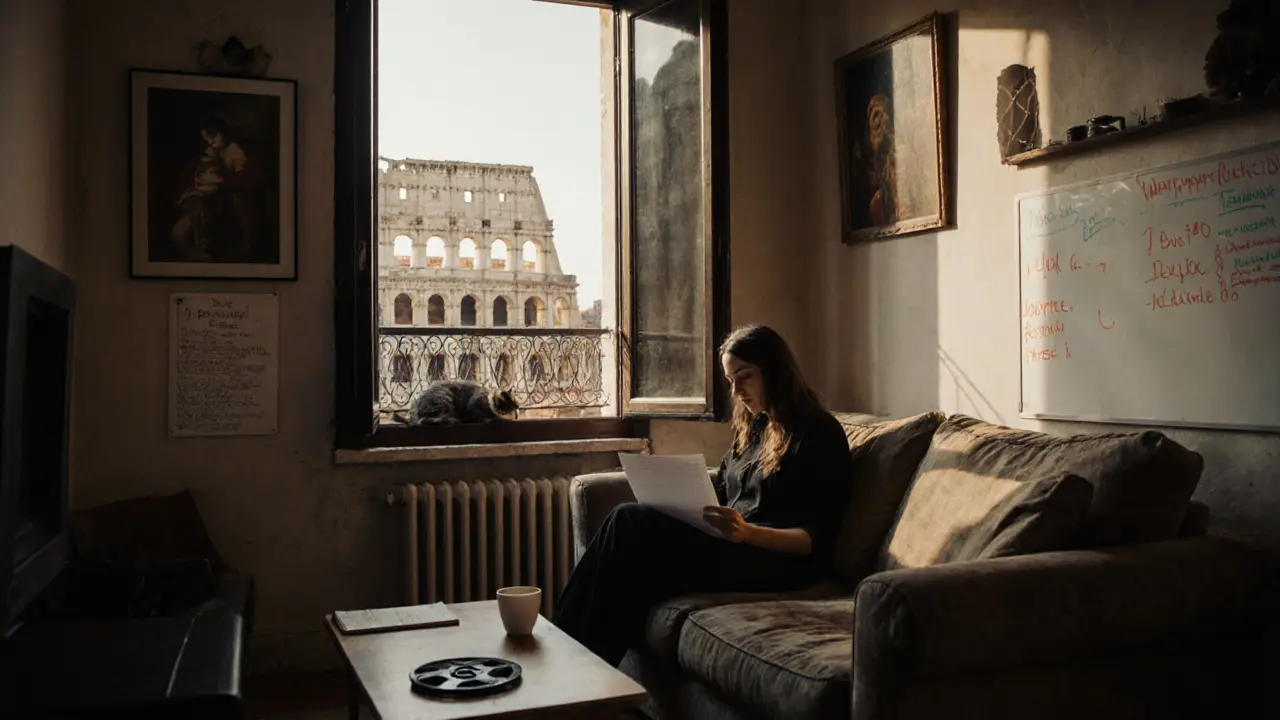
Building a Brand, Not Just a Career
By 2015, Valentina had built something rare: a brand that didn’t rely on shock value. She launched her own production label, Valentina Nappi Studio, based in a converted 19th-century printing press near the Appian Way. The studio didn’t produce hundreds of videos a month. It produced six a year-each one a short film with a narrative arc, real lighting, and no fake orgasms. She hired local actors, many of them students from Roma Tre University. She paid them union rates. She gave them credit.
She didn’t do interviews often. But when she did, she talked about lighting. About sound design. About the ethics of consent on set. She once told a journalist, "I’m not here to sell fantasy. I’m here to show what happens when two people decide to be real with each other. That’s not pornography. That’s human behavior."
Her studio became a hub-not just for performers, but for writers, cinematographers, and even philosophers who wanted to explore intimacy in film. She hosted monthly screenings in a small theater near Campo de’ Fiori. The audience? Film students, sex educators, retired professors, and curious tourists who stumbled in by accident.
Rome’s Role: The City That Shaped Her
Rome wasn’t just a backdrop. It was a collaborator. The city’s history of art, power, and repression shaped how she approached her work. She studied Caravaggio’s use of shadow. She read Sartre’s writings on freedom. She walked the streets of Trastevere at 3 a.m. and watched how people moved when they thought no one was looking.
She filmed scenes in real Roman apartments-not staged sets. She used natural light from windows that faced the Colosseum. She hired local musicians to score her films. She refused to use green screens. She said, "If you’re going to show the body, show the place it lives in."
Her work began appearing in university film courses across Europe. A 2021 study from the University of Bologna analyzed her films as case studies in "ethical erotic cinema." She was invited to speak at the Venice Biennale-not as a performer, but as a filmmaker.
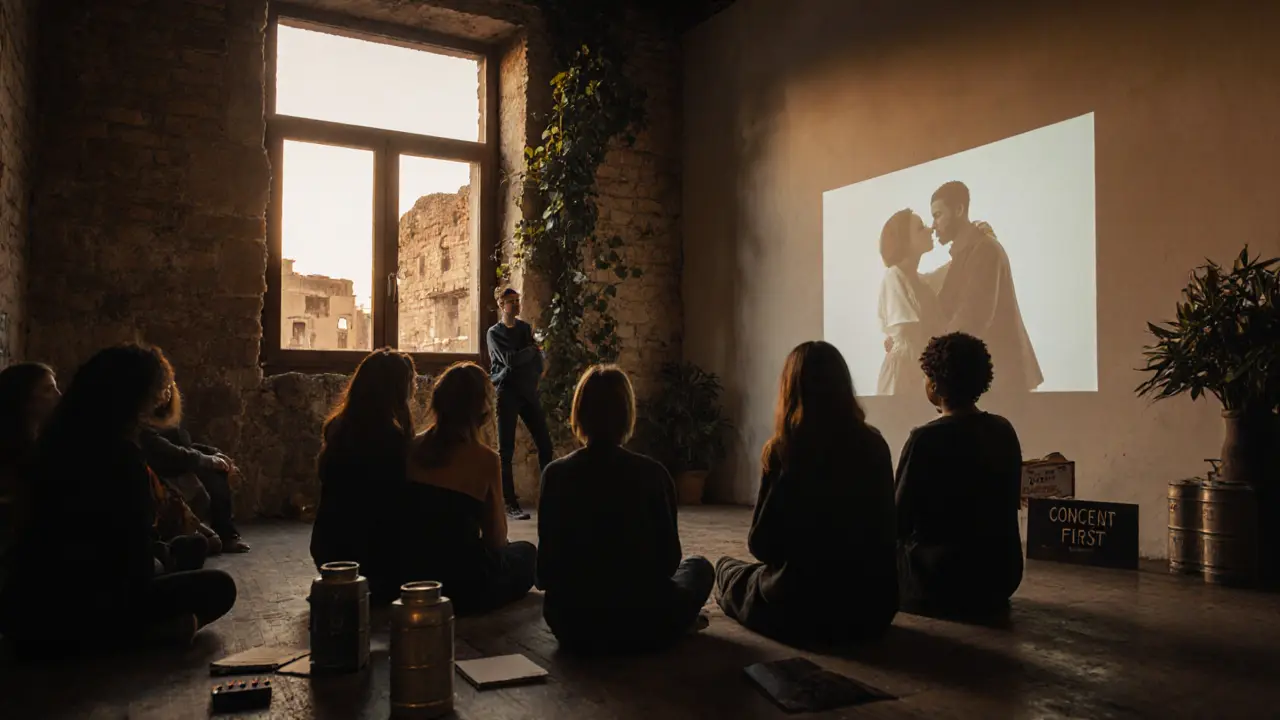
What Sets Her Apart
Valentina Nappi doesn’t fit the mold of the typical adult star. She doesn’t post daily selfies. She doesn’t sell merch. She doesn’t appear on reality TV. She doesn’t need to. Her name is recognized not because of how much she showed, but because of how much she refused to compromise.
She still lives in the same apartment in Testaccio. She still walks to the market. She still argues with her neighbor about who owns the cat that sleeps on the fire escape. She still turns down offers from Hollywood. She still says no to anything that feels like exploitation.
Her most successful film, "The Last Light," was shot in 2023. It’s 22 minutes long. No dialogue. Just two people in a room, talking through silence. It won Best Short at the Rome Independent Film Festival. The jury wrote: "This isn’t about sex. It’s about presence."
Valentina didn’t become famous because she was beautiful. She became famous because she was uncompromising. She didn’t chase trends. She built a language. And Rome, with all its contradictions, gave her the space to speak it.
Her Legacy in the Industry
Today, her studio trains new performers in consent, camera literacy, and creative autonomy. She doesn’t teach them how to look good on camera. She teaches them how to own their boundaries. Her former assistants now run their own studios in Milan, Berlin, and Barcelona. None of them use the word "porn" to describe their work. They call it "erotic cinema."
She’s never been on a magazine cover. She’s never done a podcast. But if you ask anyone who works in European adult film today who changed the game, they’ll say her name without hesitation.
She didn’t need to leave Rome to become global. She just needed to stay true to it.
How did Valentina Nappi start her career?
Valentina Nappi started her career in 2010 by working with a small indie production house in Rome that filmed low-budget scenes in converted lofts. Her first scene was shot in a studio behind a hardware store in San Giovanni. She had no experience, but her authenticity stood out, and the clip went viral on Italian forums before she had a public name.
Why did Valentina Nappi stay in Rome instead of moving to Hollywood?
Valentina stayed in Rome because the city gave her both anonymity and creative freedom. She rejected offers from major U.S. studios that wanted her to change her name or perform in English. She believed her work was tied to the culture and rhythm of Rome, and she refused to compromise her identity for mainstream success.
What makes Valentina Nappi’s films different from mainstream adult content?
Valentina’s films focus on narrative, natural lighting, and emotional realism. She avoids scripted scenarios and fake reactions. Her productions, made under her studio Valentina Nappi Studio, are more like short films-often dialogue-free, shot in real Roman locations, and designed to capture human intimacy rather than fantasy. Critics have compared them to arthouse cinema.
Does Valentina Nappi still make films today?
Yes. She still produces six films per year through her studio, based in a converted printing press near the Appian Way. Her most recent film, "The Last Light" (2023), was a 22-minute silent piece that won Best Short at the Rome Independent Film Festival. She continues to prioritize artistic integrity over volume or commercial appeal.
Is Valentina Nappi involved in any activism or education?
Yes. Through her studio, she trains new performers in consent, camera awareness, and creative rights. She hosts screenings and discussions in Rome that attract film students, educators, and sex researchers. She’s also been invited to speak at academic conferences on ethical erotic cinema, helping shift how the industry is viewed in cultural and academic spaces.

